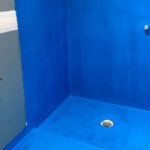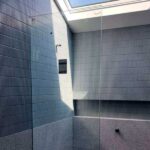Advantages and Disadvantages of Epoxy Flooring
The epoxy is a modern solution that’s transforming solutions for flaring. As you explore flooring options for your space, whether it’s a trendy café in Melbourne CBD or a cozy suburban home, understanding the nuances of epoxy flooring is crucial. This innovative flooring option isn’t just about adding a sleek, contemporary look; it’s also about embracing a practical and durable choice.
Epoxy flooring, a blend of resins and hardeners, creates a robust, seamless surface, known for its resilience and versatile aesthetics. In Melbourne, where both style and functionality are key, this flooring option caters to a range of needs – from high-traffic commercial spaces to stylish residential interiors. As you read our guide, you’ll discover how epoxy flooring is not just a practical investment but also a statement of sophistication and durability.
- Overview of Epoxy Flooring
- Relevance in Modern Construction
- Advantages of Epoxy Flooring
- Durability and Longevity
- Resistance to Chemicals and Stains
- Aesthetics and Versatility
- Ease of Maintenance
- Disadvantages of Epoxy Flooring
- Preparation and Application Process
- Sensitivity to UV Light and Temperature
- Considerations for Specific Uses
- Residential Epoxy Flooring Melbourne
- Garage Epoxy Flooring
- Epoxy Flooring Tiles
- Conclusion
Overview of Epoxy Flooring
Epoxy flooring comprises a system of two main components: resins and hardeners. When mixed, they form a rigid plastic material, known for its durability and strong adhesive properties. Commonly used in areas demanding robust flooring solutions, epoxy flooring offers an attractive yet practical finish.
Relevance in Modern Construction
In the context of modern construction, epoxy flooring stands out for its adaptability and functional benefits. It’s increasingly seen as an essential element in designs that require a combination of aesthetic appeal and practicality, especially in places like Melbourne where both residential and commercial buildings value such versatility.
Advantages of Epoxy Flooring
Wear resistance and durability. Epoxy floor coatings form a high-strength surface resistant to mechanical and temperature damages, cracks, impacts, vibrations, movements of people and machinery. The service life of epoxy floors is up to 30-40 years.
Fast and easy installation. Casting of epoxy floors does not require marking, additional adhesives, special tools or equipment.
Ease of maintenance. Caring for them is no more difficult than for a wooden floor covered with varnish.
Resistance to temperature fluctuations. Epoxy floors can be poured even in baths and saunas.
Water resistance and waterproofing of the surface, oil resistance. Seamlessness and ease of cleaning. As a result of polymerization, the epoxy resin forms a strong, seamless coating, which does not accumulate dust, dirt, debris, or mold. Thanks to easy cleaning, epoxy floors are ideal for food production and packaging enterprises or pharmaceutical drugs.
Chemical resistance. Floors made of epoxy resin allow the use of aggressive cleaning agents, including alkalis, acids, solvents, disinfecting agents. This is why epoxy floors are perfectly suited for enterprises where sanitary and hygienic requirements are extremely high, such as hospitals, pharmaceutical, or food enterprises.
Dust-free.
Safety. Cured epoxy resin is non-toxic and completely safe for human health.
Non-flammability.
Attractive appearance. The resin forms a smooth, glossy coating that not only looks effective but can also visually expand the space by reflecting light. Using dyes and various fillers, you can create a variety of decorative effects.
Anti-slip effect. Epoxy floors prevent slipping and falling thanks to their inherent anti-slip texture. What may seem like a non-critical characteristic actually leads to significant social benefits. Accidents related to slipping and falling are a major cause of industrial injuries. Reducing injuries is an important issue in any industrial sector. Floors with epoxy coating will play their role in this matter. As they will help reduce the costs of compensation payments and legal proceedings arising from industrial injuries.
Durability and Longevity
One of the most significant benefits of epoxy flooring is its incredible durability. It can withstand heavy traffic and extreme conditions, making it ideal for commercial and industrial facilities. Its resilience also translates to a longer lifespan compared to traditional flooring options.
Resistance to Chemicals and Stains
Epoxy flooring is highly resistant to a variety of substances, including chemicals, oil, and water. This makes it an excellent choice for areas like garages and industrial settings where spillages are common. Its non-porous nature ensures easy cleaning and maintenance.
Aesthetics and Versatility
Epoxy flooring is not just about functionality; it also offers a wide range of aesthetic options. Available in various colors and patterns, it can mimic different textures, including marble and terrazzo. This versatility makes it a popular choice for enhancing the visual appeal of spaces like residential epoxy flooring in Melbourne.
Ease of Maintenance
The smooth, seamless surface of epoxy flooring makes it exceptionally easy to clean and maintain. Its resistance to stains and spills means it can be kept in pristine condition with minimal effort, a quality highly valued in both residential and commercial settings.
Disadvantages of Epoxy Flooring
Disadvantages of epoxy flooring include:
- Yellowing under the influence of ultraviolet light
- Difficulty in dismantling (it is easier to lay a new coating on top)
- May emit toxic substances when heated strongly
- Relatively high price
Laying epoxy flooring is more expensive compared to other materials. However, in the long term, such floors do not need to be replaced as often as other types of coverings. They are easier to keep clean and disinfect due to the absence of seams and increased resistance to strong cleaning agents. They are simpler to install and are replaced less often than other types of coverings, therefore, they produce less waste and require less expenditure for their disposal.
Overall, an epoxy floor offers significant cost savings even with higher initial investments.
Preparation and Application Process
The installation of epoxy flooring can be labor-intensive and time-consuming. The surface underneath must be properly prepared, which often involves extensive cleaning, repairing, and priming. Incorrect application can lead to issues like bubbling or peeling.
Sensitivity to UV Light and Temperature
Exposure to sunlight can cause some types of epoxy flooring to yellow over time. Additionally, extreme temperature changes can lead to cracking and damage, making it less suitable for outdoor environments.
Considerations for Specific Uses
When choosing epoxy flooring, it’s essential to consider the specific needs of the environment in which it will be used.
Residential Epoxy Flooring Melbourne
In residential settings, especially in Melbourne, aesthetics and comfort are crucial. Homeowners often opt for epoxy flooring tiles or designs that complement their interior décor while ensuring durability and ease of maintenance.
Garage Epoxy Flooring

For garages, durability and resistance to chemicals are key. Epoxy flooring provides a robust surface that can withstand the rigors of automotive work and frequent usage, making it an ideal choice for garage environments.
Epoxy Flooring Tiles
Epoxy flooring tiles offer a convenient solution, combining the benefits of epoxy with the ease of installation of tiles. They are an excellent choice for those looking for a balance between practicality and aesthetics.
Conclusion
In conclusion, epoxy flooring presents a blend of durability, aesthetic appeal, and practicality, making it a popular choice for a variety of settings. While there are some disadvantages to consider, the benefits often outweigh the drawbacks, especially when specific needs and environmental factors are taken into account. Whether for a residential space in Melbourne or a commercial garage, epoxy flooring offers a reliable and attractive flooring solution.


